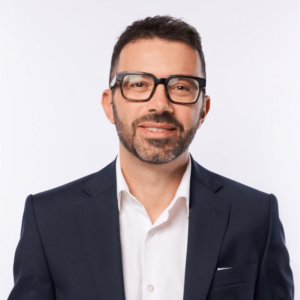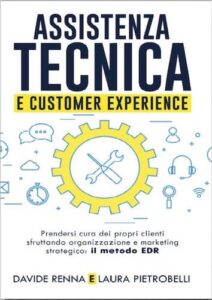Failure.
It’s a word that carries immense weight, especially for those of us who take risks, aim high, and relentlessly pursue our ambitions. As an entrepreneur with years of experience, I’ve learned that failure is not an endpoint. It’s a moment, a part of the process, that tests us, teaches us and shapes who we become.
I know this because I’ve lived through it.
In 2008, I closed the doors on my first entrepreneurial venture. At the time, it felt like the world was collapsing around me. The business didn’t fail in the technical sense – it was a voluntary liquidation caused by external factors – but in my mind, it was an undeniable failure. The psychological toll was heavy, and the emotions from that time remain vivid to this day.
Looking back, however, I realize that what I saw as a failure was simply one chapter in a much larger story. That chapter taught me lessons I couldn’t have learned any other way and shaped the mindset that has guided me through every success and setback since.
A Matter of Perspective
As entrepreneurs, we often feel the pressure of societal expectations. In many cultures, failure is seen as a permanent stain, a sign that you weren’t good enough.
In Italy, where I come from, this perception is particularly harsh. A failed business can lead to financial penalties, social judgment, and a sense of unworthiness that lingers for years. You’re branded for life, and suddenly, the doors to opportunity seem permanently closed.
At 27 years old, coming from humble beginnings in a culture steeped in traditional expectations, I felt this weight profoundly. The judgment of others – those who hoped I’d succeed, those who wanted me to fail – was suffocating.
But the truth is, this perception of failure isn’t universal. In many other places, like the United States, failure is viewed through a completely different lens. It’s seen as a badge of honor, a necessary step on the path to success.
So, failure is not a reflection of who you are. It’s simply an experience; a result of decisions, circumstances, and timing. It doesn’t define you unless you allow it to. Over the years, I’ve come to see failure not as a verdict but as feedback. It’s a signal to adapt, rethink and try again with new insights.
If you haven’t failed, they say, you haven’t truly tried.
Looking back 15 years later, I can confirm that my failure was one of the most formative experiences of my life. Today, I manage multiple companies, enjoy the freedom to live where I choose, and have built a career I love.
But reaching this point required distancing myself from those limiting beliefs, investing in my personal growth and exposing myself to new ways of thinking.
The Role of Mindset in Redefining Failure
Above all, failure is defined by how we interpret and respond to the outcomes. This is where mindset makes all the difference. A resilient mindset helps us separate our sense of self from external achievements, turning every challenge into a chance to learn and grow.
In my early years, I allowed failure to define me: I internalized it as a reflection of my abilities, my potential and my worth. It wasn’t until I began to shift my mindset—focusing on resilience, adaptability, and long-term growth—that I was able to move past it.
For example, I once kept a professional relationship far longer than I should have, despite knowing early on that it wasn’t aligned with my values or goals. At first, I saw this as a mistake. But over time, I realized it was a valuable lesson: sometimes, the greatest growth comes not from avoiding missteps but from learning how to course-correct and refine your approach.
For me, failure touched something deeper. It challenged my sense of identity and forced me to confront how I defined myself not by external labels, but by my inner resilience and capacity to adapt.
Labels Doesn’t Define You
Society loves labels. We’re defined by our titles, roles, and achievements.
But are we truly any of these things?
Am I an entrepreneur? Yes. But I’m also a mentor, a learner, a friend and a husband. None of these roles define me entirely; they’re simply facets of a much larger identity.
Failure, too, is often treated as a label. But it’s not.
Failure, like success, is just another experience. It’s an event, a moment in time, not a definition of who you are. This distinction is crucial because it allows you to move forward without carrying the weight of past setbacks.
You are not your failures: you are the sum of your experiences, your resilience and your ability to grow.
Embracing Failure as Part of the Process
Today, I approach every new endeavor with the calm confidence of someone who understands that failure is always a possibility – but so is success.
Failure is a necessary part of success. It’s not something to fear but something to understand and embrace. Every misstep provides data, every setback offers perspective, and every challenge builds strength.
If I fail, I’ll learn. If I succeed, I’ll grow.
Either way, my identity remains intact because I know that my value isn’t tied to any single outcome.
As we move into a new year, I encourage you to rethink your relationship with failure. Don’t see it as an endpoint or a reflection of your worth. Instead, view it as part of the journey—a moment that contributes to your growth and prepares you for greater opportunities ahead.
Because ultimately, failure isn’t about falling short. It’s about learning, adapting, and continuing to move forward. And with the right mindset, every failure becomes a stepping stone to success.











